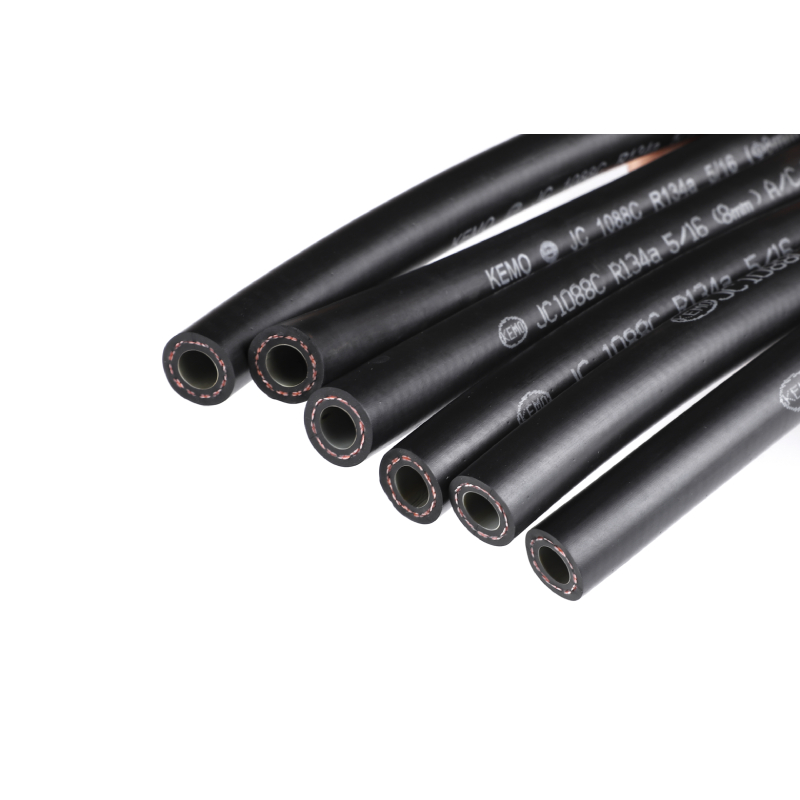Estimating the Expenses Involved in Brake Hose Replacement and Maintenance
Samh . 10, 2024 10:45 Back to list
Estimating the Expenses Involved in Brake Hose Replacement and Maintenance
Understanding Brake Hose Costs An Essential Component of Vehicle Safety
When it comes to vehicle maintenance and safety, one cannot overlook the importance of the brake system. Among the various components that contribute to effective braking, the brake hose plays a critical role. The brake hose is responsible for transferring brake fluid from the master cylinder to the brake calipers, facilitating the application of pressure necessary to slow down or stop the vehicle. Understanding the costs associated with brake hoses is vital for vehicle owners, as it not only affects maintenance budgets but also impacts overall safety.
Factors Affecting Brake Hose Costs
The cost of brake hoses varies widely depending on several factors, including the make and model of the vehicle, the type of brake hose required, and the labor costs involved in installation.
1. Vehicle Type Different vehicles have different brake systems, which directly influence the cost of replacement hoses. For example, luxury vehicles or high-performance cars often require specialized hoses that can be more expensive than standard options used in regular sedans or hatchbacks.
2. Material and Quality Brake hoses are generally made from rubber or reinforced synthetic materials. The choice of materials affects the price significantly. High-quality hoses, which offer improved durability and resistance to heat and pressure, often come at a premium. It's essential to balance cost with quality, as using subpar hoses can lead to brake failure, posing a serious safety risk.
3. Aftermarket vs. OEM Original Equipment Manufacturer (OEM) parts typically cost more than aftermarket alternatives. While OEM hoses may provide a perfect fit and superior performance, many vehicle owners opt for aftermarket products to save money. However, caution is advised, as the quality of aftermarket parts can vary greatly.
4. Labor Costs In addition to the price of the hose itself, labor costs can significantly impact the total expense. Brake hose replacement usually requires the expertise of a qualified mechanic, and labor rates can vary based on location and service provider. It’s always a good idea to get multiple quotes for both parts and labor before proceeding with repairs.
brake hose cost

Average Costs
On average, the cost of brake hoses can range from $30 to $150 per hose. However, some vehicles may have unique requirements that drive the price up to $200 or more. When you factor in labor, the total cost to replace brake hoses can range from $100 to $300 per wheel, depending on the complexity of the job and the vehicle in question.
Importance of Regular Inspection
Regular inspection and maintenance of brake hoses are crucial for vehicle safety. Over time, brake hoses can degrade due to exposure to heat, pressure, and environmental factors. Cracks, leaks, or bulges in the hose can lead to a loss of brake fluid, resulting in diminished braking performance. Regular inspections can help catch these issues early, allowing for timely replacements that can prevent accidents.
DIY vs. Professional Help
While some automotive enthusiasts may consider a do-it-yourself (DIY) approach to brake hose replacement, it’s essential to understand the risks involved. Properly bleeding the brake system and ensuring there are no air bubbles is critical for effective braking. If this is not done correctly, it can lead to significant safety hazards. Hiring a professional mechanic is often the safest choice, particularly for those who are not confident in their automotive skills.
Conclusion
Understanding the costs associated with brake hoses is essential for any vehicle owner who prioritizes safety and reliability. From the choice between OEM and aftermarket parts to the implications of labor costs, several factors influence the overall expense of maintenance. Regular inspections and timely replacements not only enhance the performance of your vehicle but also ensure your safety on the road. Investing in high-quality brake hoses may seem pricey, but the cost of neglecting this vital component can be far greater, potentially leading to dangerous situations and costly repairs down the line. Prioritize your brake system, and you will ensure a safer driving experience for yourself and your loved ones.
